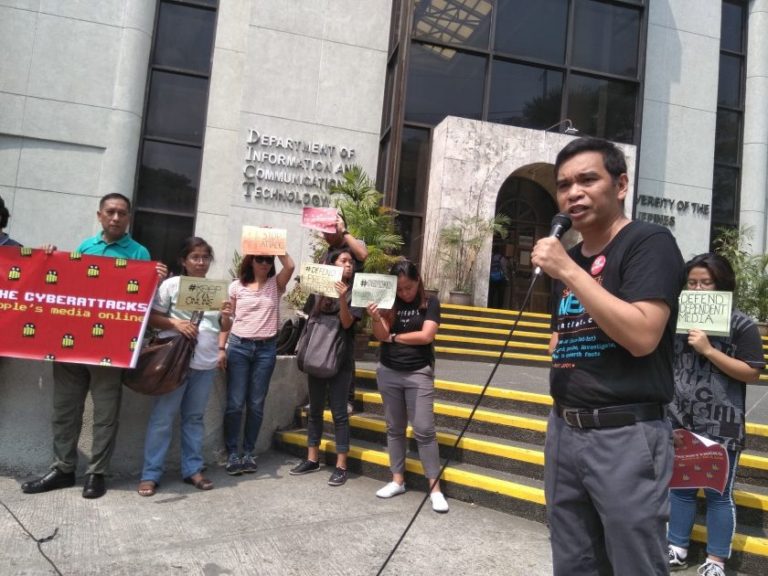
By JANESS ANN J. ELLAO
Bulatlat.com
MANILA — For the first time since it was initiated by media watchdog Reporters Without Borders in 2008, Filipino journalists commemorated the World Day against Cyber Censorship to protest the series of relentless cyber-attacks against websites of alternative news media organizations.
The World Day Against Cyber Censorship is a global campaign of Reporters Without Borders that is intended to rally “in support of a single Internet that is unrestricted and accessible to all.” It recognizes the Internet as a “force of freedom,” which, as a result, is pushing many governments to control it.
Digital rights advocates have documented an apparent global attempt to silence dissent by cutting access to the Internet. Governments, a report said, are “leaning on in an increasingly authoritarian and menacing manner.”
In the Philippines, Internet connection does exist even if it is among the slowest worldwide. But access to websites that provide sharp and comprehensive analyses of national and global issues is being cut off through relentless cyber-attacks. Through what is called a Distributed Denial of Service (DDoS), an insidious and well-funded cyber-attack is being conducted to overwhelm the server of a website to deny legitimate readers access to its contents.
During the protest action, AlterMidya People’s Media Network national coordinator Rhea Padilla said that government’s inaction over the repeated attempts of Sweden-based Qurium Media Foundation to reach out regarding the cyber-attacks pushes them to believe that this is a state-sanctioned move.
By targeting the Philippine alternative press, however, those behind the attack inadvertently highlighted its role in shaping public opinion. Media watchdog Southeast Asian Press Alliance (SEAPA) noted that “alternative news organizations play a crucial role in informing the people about issues and concerns of public interest that are usually overlooked by the mainstream media. They provide a platform for voices in society that are conveniently ignored, or worse muted, by state and non-state actors alike.”
And, more importantly, this is not isolated case that is aimed to curtail both the freedom of the press and of expression. SEAPA, in its report, noted specific incidents under President Rodrigo Duterte where target news sites were either forced to go offline or be subjected to hacking.
Aside from cyber-attacks, the Philippine media have also been subjected to various forms of attacks. Journalists have been killed and have faced threats. Some were arrested, as in the case of journalists arrested while covering the NutriAsia workers’ strike or the politically-motivated charges against Rappler chief Maria Ressa. Also part of the attacks against press freedom is the probable non-renewal of the franchise of TV giant ABS-CBN which expires in March 2020 and the repeated threats against the Philippine Daily Inquirer.
To justify these attacks, the role of the press in a democracy (or whatever’s left of it) is constantly being belittled and mocked. After all, the vilification of the media, especially those that are critical in reporting government policies, is an old weapon used to stifle dissent, no matter how futile it may be.
The essence of the World Day Against Cyber Censorship is true for many Filipino journalists struggling to ferret out the truth.
The post What World Day against Cyber Censorship means to Filipino journalists appeared first on Bulatlat.